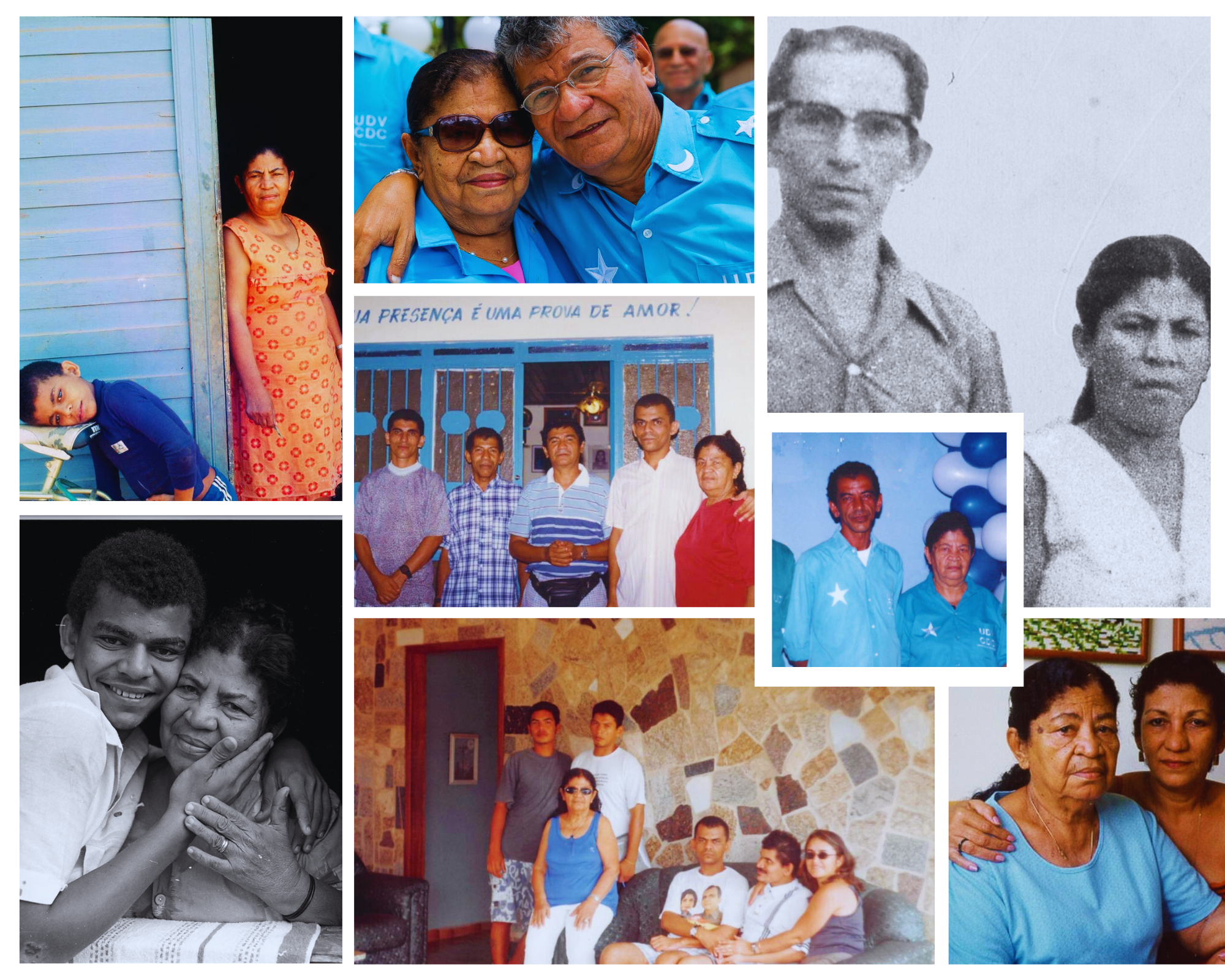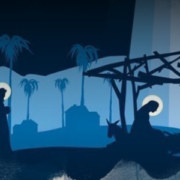Mestre Pequenina: A Woman of Virtues
| September 28, 2024

September welcomes the arrival of spring in the southern hemisphere, and also gifts us with the birth of Raimunda Ferreira da Costa, the unforgettable Mestre Pequenina. A woman who came with the important mission of being the companion of José Gabriel da Costa, Mestre Gabriel, to establish the União do Vegetal in the Amazon rubber plantations, together with their children.
To honor this distinguished lady, who would have turned 96 today, today- the 28th, the UDV Blog invited Suely Maia de Oliveira Forte to write this post. Conselheira Suely*, as she is known within the field of the União do Vegetal, is someone who spent several years with Mestre Pequenina. She is the daughter of Conselheira Eulália Castelo Maia, and had six siblings. One of them is Wilson, who was healed by Mestre Gabriel when he was 6 years old.
Back in 1965, Mestre Pequenina invited Eulália to come to know the Vegetal. From that invitation, a great friendship between the families was born. At the time, Conselheira Eula’lia, with two small children, Suely and Wilson, was working as a nursing technician at São José Hospital, raising them on her own.
Conselheira Suely shares the same birthday as Mestre Pequenina, and they celebrated that day together for several years: “I had the happiness of being born on the same day as her, and Mestre Pequenina always liked joy.”

Happy childhood in the house of the Mestre
“For me, it is always a great joy and an honor to speak about Mestre Pequenina. My brother and I spent several years in Mestre Gabriel’s home.
Mestre Gabriel and Mestre Pequenina both knew that we were often left alone at home, so Mestre Gabriel asked Mestre Pequenina to come and take us to their house to spend the day. There, we played, we ate, and we spent time with their family’s children. To me, Mestre Gabriel was a father. My own father separated from my mother very early on, so I didn’t have fatherly companionship in my life – the father I looked up to was Mestre Gabriel.
We were neighbors for many, many years. Mestre Pequenina was someone who received anyone in need with open arms. I met people who called her ‘Mother Pequenina,’ especially those who came from the rubber plantations seeking medical help, often in critical condition from malaria – C. Losa was one of them. They all stayed at Mestre Pequenina’s house, and some never returned to the seringal. There, those people found comfort, found a home, and came to know a family. Some lived for a while in Mestre Pequenina’s house, for a good amount of time, and only later did they start moving forward with their lives, getting married, moving to other cities, etc.
Mestre Pequenina was someone who liked to help others, and we were fortunate enough to receive that care and friendship… to have her help my mother raise us, because that’s what she did. She helped my mother take care of us. She gave us the best she had, in terms of orientation and behavior. She brought to us this love of the mother.”

Virtues of Mestre Pequenina
“One of Mestre Pequenina’s virtues was courage. The courage to face life’s challenges.
After Mestre Gabriel disincarnated, she was left with all those children, most of whom were still small. Bem – the nickname for Bemvino Gabriel da Costa, the youngest child of Mestre Gabriel and Mestre Pequenina – was just eight months old. But she always had the courage to work, and inside of that, I always draw inspiration from her.
At that time, she didn’t have a steady job like we have today, but she always worked, always found a way, always did things to earn her own money to support her children. She used to say, ‘My child, I don’t ask. I don’t ask because I have the health and willingness to work. If someone wants to give me something, I accept it. But living by begging, I don’t like to do that.’
Back in the 1980s, the Manaus Free Trade Zone and the BR Transamazon Highway already existed. I would go by bus with her to sell her things.
She always worked not just to support her children and herself but also worked a lot for the União do Vegetal. A tireless person. I accompanied Mestre Pequenina going to direct Sessions, directing preparos of the Vegetal in Ji-Paraná (RO), and in Jaru (RO), several times. She was a person who never showed any reluctance to work for the UDV.
I remember that during the first branching of União do Vegetal, my family joined with Mestre Pequenina’s family, and we spent some time drinking the Vegetal at Jorge Simon’s farm. She had some land, a plot in front of Jorge’s farm. She donated a part to the União do Vegetal to build Núcleo Mestre Iagora. Sh person detached from possessions.
This virtue of hers I always remember: courage. The courage to face life’s challenges, to resolve things, to not be disheartened by difficulties. She raised her children with dignity, honesty, within humility, and she raised us the same way: me, my brother, and my mother.
Another virtue of Mestre Pequenina was kindness. Because Mestre Pequenina was always a very kind person. She shared the little she had with everyone who needed her, those who came to her house with difficulties, which were often financial ones.
After I moved to João Pessoa (PB), every time I went to Porto Velho, Mestre Pequenina would ask me to take her to visit someone: Dona Antônia. Dona Antônia was married to Mr. Santos, and they had an adopted daughter, Edith. Mr. Santos and Dona Antônia were associated during the time of Mestre Gabriel, and Mestre Gabriel and Mestre Pequenina were Edith’s godparents.
After Mestre Gabriel disincarnated, Santos separated from Dona Antônia. After some time, Dona Antônia fell ill and was bedridden for many years, I think about 10 to 12 years.
They had few material resources; they were very humble indeed. My brother Wilson and I knew where they lived because we had an aunt who lived near Edith. So usually, when we visited my aunt, we visited Edith and Dona Antônia.
And Mestre Pequenina, knowing that I knew where they lived, would always ask me to take her to visit her comadre.
Even with so much time that had passed, Mestre Pequenina never abandoned Dona Antônia. When I arrived in Porto Velho, she would ask me if I had news of Dona Antônia and would ask me to take her to Edith’s house. When we arrived, Dona Antônia, even bedridden, would be so happy, crying and talking with Mestre Pequenina.
One time, Dona Antônia asked Mestre Pequenina to take her to drink Vegetal at the União do Vegetal. Mestre Pequenina told her, ‘My comadre, now it’s hard to take you to drink Vegetal because you are bedridden and I don’t have the conditions to take you, but God willing, one day I’ll come and bring you Vegetal.’
Every time Mestre Pequenina went there, she would put some money in Dona Antônia’s hand. I never knew how much the amount was. I just remember seeing that scene many times: Mestre Pequenina, as she was leaving, would open Dona Antônia’s hand, put that little bit of money in her palm, close it, and say, ‘This is for you to buy your medicine, to buy your food, it’s for you to get what you need.’
I thought that was so beautiful. I get emotional just remembering it. Mestre Pequenina was very kind to people. She liked to take care of others. And for me, this kindness she showed to Dona Antônia was something from her heart. She did it out of love and friendship, for that comadre of hers who served her so much, who helped organize the work at the historic Headquarters in Porto Velho, when Mestre Pequenina was Organ (responsible for organizing some of the works for a Núcleo or Authorized Distribution of Vegetal). Dona Antônia was one of the people who helped Mestre Pequenina clean the Salon. And Mestre Pequenina never forgot this friend.”


*Suely Maia de Oliveira Forte is a member of the Body of Counsel of Núcleo Conselheiro Salomão Gabriel (Santa Rita, PB – 10th Region, Brazil).
 English
English Português
Português Español
Español


